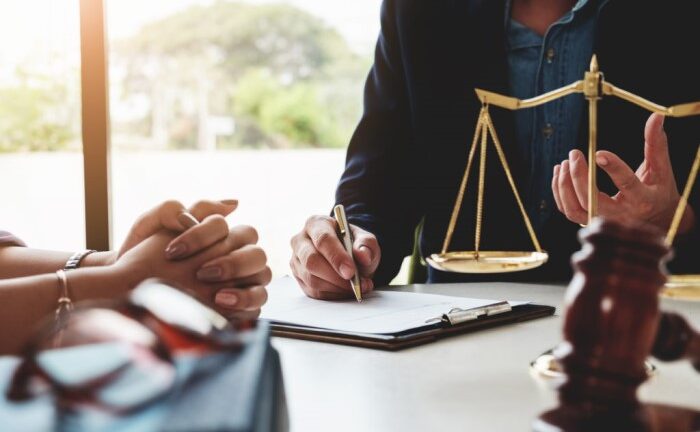Discover the specific legal considerations for minors facing a DWI arrest. Learn about penalties, legal procedures, and defense strategies to effectively handle underage DWI cases.
1. Introduction
Understanding DWI Arrests for Minors
Driving While Intoxicated (DWI) isn’t just a problem for adults—it’s a serious issue for underage drivers as well. When a minor is arrested for DWI, the situation becomes more complex, involving specific legal considerations that can have far-reaching effects. This article dives into what makes underage DWI cases unique and how they differ from those involving adults. Whether you’re a parent, a young driver, or just someone looking to understand the legal landscape, knowing the specifics can help navigate these tricky waters.
Why It Matters
For minors, the stakes are particularly high. Legal consequences can affect not just the present but the future as well. Understanding the process, penalties, and available support can make all the difference. So, let’s break down the intricate world of DWI arrests for minors and what you need to know to handle such a situation effectively.
2. Legal Framework for DWI Arrests
What Is DWI?
DWI stands for Driving While Intoxicated. It typically refers to operating a vehicle under the influence of alcohol or drugs. For adults, the legal limit for blood alcohol concentration (BAC) is usually 0.08%. However, for minors, the rules are stricter.
Legal BAC Limits
For individuals under 21, most states have a zero-tolerance policy, meaning any detectable amount of alcohol can lead to a DWI charge. This is different from the 0.08% BAC limit for adults and underscores the severity with which underage drinking and driving is treated.
Laws for Minors vs. Adults
Minors face harsher penalties and different legal processes compared to adults. The idea is to discourage young drivers from drinking and driving by imposing stricter regulations. For instance, the legal proceedings for minors often involve additional considerations, such as parental involvement and specific rehabilitation programs.
3. Specific Legal Considerations for Minors
Zero-Tolerance Policies
Most states enforce zero-tolerance laws for underage drivers. This means that even the smallest trace of alcohol in a minor’s system can result in a DWI charge. These laws are designed to prevent underage drinking and driving by imposing severe consequences for any violation.
Penalties for Underage Drinking and Driving
The penalties for underage DWI can be severe, ranging from fines to community service, and even jail time. In addition, minors often face license suspension or revocation, which can impact their ability to drive to school, work, or other essential activities.
Differences in Legal Processes
Legal procedures for minors can differ significantly from those for adults. Minors may be tried in juvenile court, and there might be a focus on rehabilitation rather than punishment. Additionally, the involvement of parents or guardians is often a crucial aspect of the legal process for minors.
4. Legal Procedures Following a DWI Arrest
Initial Steps Post-Arrest
After an arrest for DWI, the immediate steps involve being taken to a police station for booking. This includes providing personal information and potentially undergoing a BAC test. For minors, parents or guardians will usually be notified right away.
Court Processes for Minors
The court process for minors involves several steps, starting with an arraignment where the minor is informed of the charges. The case might be handled in juvenile court, where the focus is often on education and rehabilitation rather than just punishment.
Rights of the Minor
Minors have specific rights during the legal process, including the right to remain silent and the right to legal representation. Understanding these rights is crucial for ensuring fair treatment and protecting the minor’s interests.
5. Penalties and Consequences
Fines and Court Costs
One of the immediate consequences of a DWI charge is financial. Fines can be substantial, and there are often additional court costs involved. For minors, these financial penalties can be a heavy burden on their families.
License Suspension or Revocation
A common penalty for underage DWI is the suspension or revocation of the minor’s driving license. This can affect their ability to commute to school, work, and other important places. The length of the suspension can vary depending on the severity of the offense and state laws.
Probation and Community Service
Minors might be placed on probation, which requires regular check-ins with a probation officer and adherence to certain conditions. Community service is also a common penalty, aimed at giving back to the community while also serving as a deterrent.
Possible Jail Time
In more severe cases, minors can face jail time. While juvenile detention is different from adult incarceration, it still has a significant impact on the minor’s life and future.
6. Impact on Future Opportunities
Educational and Employment Opportunities
A DWI conviction can affect a minor’s future in many ways. It can hinder college admissions and job prospects, as a criminal record may be viewed unfavorably by educational institutions and employers.
Long-Term Criminal Record Implications
A DWI charge becomes part of a minor’s criminal record, which can have long-lasting effects. Although some records may be expunged, the process can be complex and not always guaranteed.
7. Defense Strategies for Minors
Common Defense Tactics
Defending against a DWI charge involves various strategies. Common tactics include challenging the legality of the traffic stop, questioning the accuracy of BAC tests, or arguing that the minor was not impaired.
Role of Legal Representation
Having a knowledgeable attorney is crucial in DWI cases. A lawyer can provide expert guidance, represent the minor in court, and help build a strong defense to achieve the best possible outcome.
Building a Strong Defense
Building a strong defense involves gathering evidence, interviewing witnesses, and understanding the nuances of DWI laws. Legal representation plays a key role in this process, ensuring that the minor’s rights are protected and that the case is handled effectively.
8. Rehabilitation and Support Programs
Alcohol Education Programs
Minors convicted of DWI often participate in alcohol education programs. These programs are designed to educate young drivers about the dangers of drinking and driving and to promote responsible behavior.
Counseling and Treatment Options
Counseling and treatment programs may be required, especially if there are underlying issues with alcohol use. These programs provide support and guidance to help minors address any problems and make positive changes.
Community Service Opportunities
Community service is often part of the penalty for a DWI conviction. This serves both as a punishment and an opportunity for the minor to contribute positively to their community.
9. Preventive Measures and Education
Importance of Preventive Education
Preventive education is crucial in reducing underage drinking and driving. By educating young drivers about the risks and consequences, we can help prevent future DWI incidents.
Programs and Resources for Young Drivers
Various programs and resources are available to educate young drivers about safe driving practices. These include school programs, online resources, and community initiatives aimed at raising awareness and promoting responsible behavior.
Role of Parents and Guardians
Parents and guardians play a critical role in preventing underage drinking and driving. Open communication about the risks, setting clear expectations, and monitoring behavior can help keep young drivers safe.
10. Case Studies and Real-Life Implications
Notable Cases Involving Underage DWI
Examining real-life cases can provide valuable insights into the implications of underage DWI. These cases often highlight the personal, legal, and social impacts of such offenses.
Lessons Learned
From these cases, we learn about the importance of preventive measures, the need for effective legal defense, and the long-term consequences of a DWI charge.
Impact on Families and Communities
The effects of underage DWI extend beyond the individual, affecting families and communities. Understanding these impacts can help in developing better support systems and preventive strategies.
11. Expert Insights and Legal Advice
Quotes from Legal Professionals
Legal experts offer valuable perspectives on handling underage DWI cases. Their insights can help minors and their families navigate the legal system and make informed decisions.
Common Advice for Minors and Their Families
Advice from legal professionals often includes understanding the legal process, seeking appropriate legal representation, and participating in rehabilitation programs.
Importance of Seeking Legal Counsel
Seeking legal counsel is crucial in DWI cases to ensure fair treatment and effective defense. Legal experts can provide guidance, represent the minor in court, and work towards the best possible outcome.
12. Conclusion
Understanding the specific legal considerations for minors in DWI cases is essential. From zero-tolerance policies to potential long-term impacts, being informed can make a significant difference.
Education and prevention are key in addressing underage drinking and driving. By promoting responsible behavior and understanding the legal implications, we can work towards reducing DWI incidents among minors.
Dealing with a DWI arrest is challenging, but with the right knowledge and support, minors and their families can navigate the process effectively and work towards a positive resolution.



